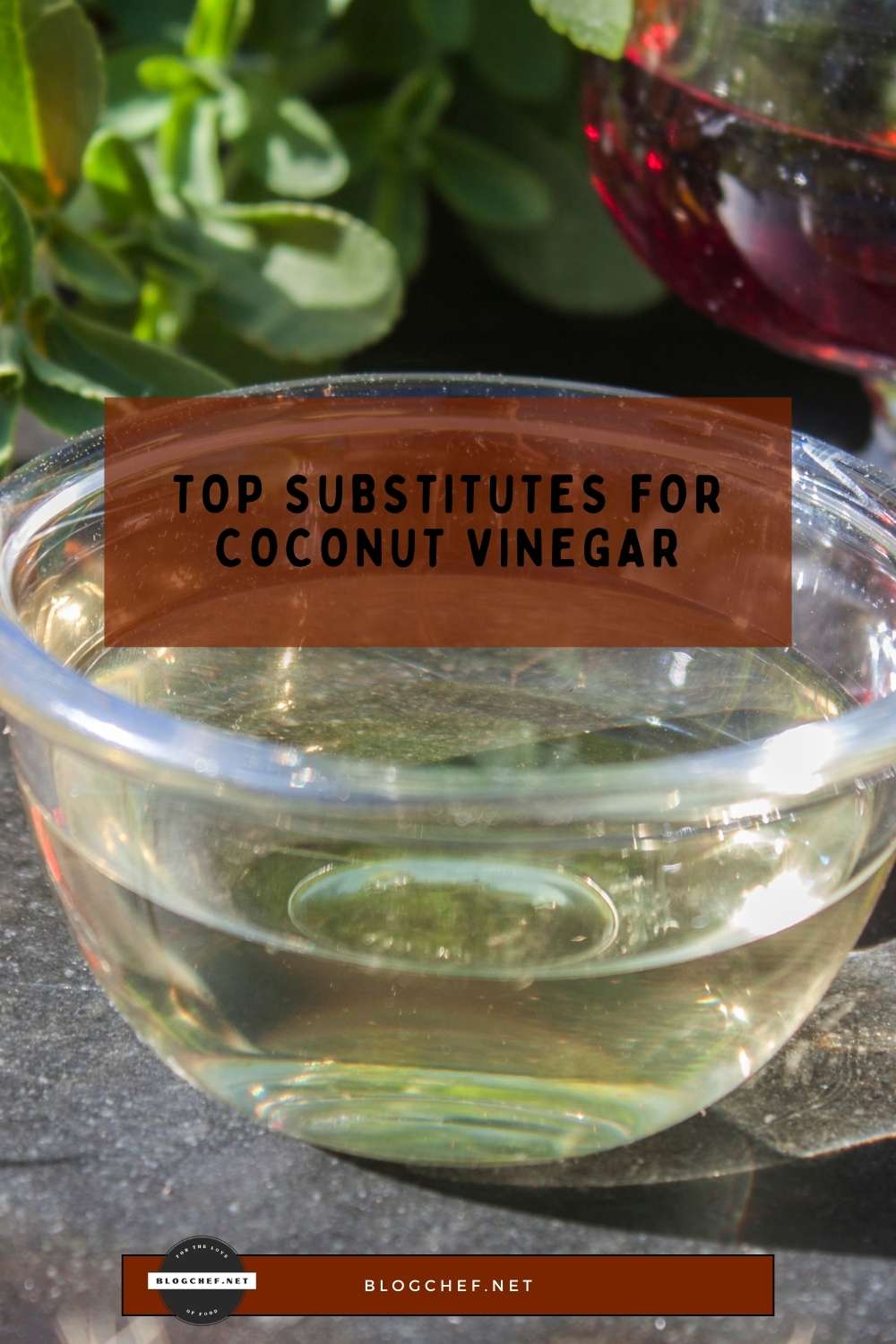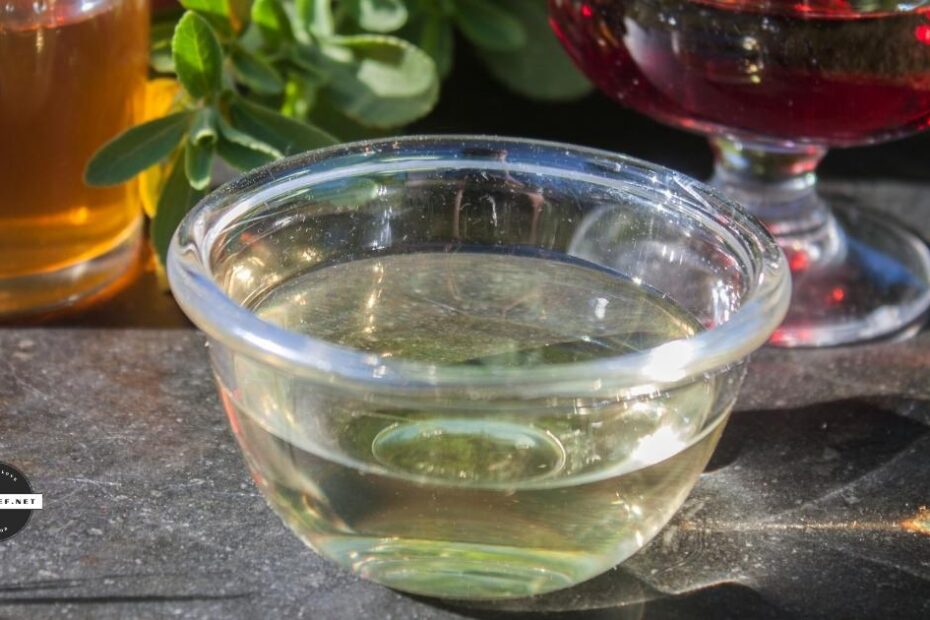When do you need a substitute for coconut vinegar? You’re about to make chicken adobo or atchara and you realize you’re out of a key ingredient. Or you’re prepping to make a Southeast Asian feast, and you don’t want to spend $10 on another type of vinegar.
Let’s cover the best substitutes here, along with other ways you can use coconut vinegar — because we might convince that the $10 for this ingredient really is worth it.
Read next: Guide to vinegar uses and substitutions

Rice vinegar
Rice vinegar is the closest match to coconut vinegar. It’s mild and slightly sweet, which is a nice fit for coconut vinegar’s smooth, earthy vibe.
You can substitute rice vinegar at a 1:1 ratio. Try it in adobo, pickled vegetables, dipping sauces, and marinades.
Note that unseasoned rice vinegar is a better fit than seasoned rice vinegar. If you must use seasoned rice vinegar, reduce sugar elsewhere in the recipe and then adjust the sweetness to taste.
Read next: Substitutes for rice vinegar
Diluted apple cider vinegar
Both coconut vinegar and apple cider vinegar have fruity undertones. However, ACV is quite a bit sharper than coconut vinegar — but you can fix that by diluting it with water. Mix ¾ of a tablespoon of ACV with ¼ tablespoon of water. You can then use 1 tablespoon of the diluted mixture for every 1 tablespoon of coconut vinegar.
This coconut vinegar substitution works for braised dishes, adobo, and slaws.
White wine vinegar
White wine vinegar can also stand in for coconut vinegar, as long as you work carefully. White wine vinegar is clean and mild, but it is sharper than coconut vinegar. To make the substitute successfully, start with slightly less than a 1:1 ratio. Taste and adjust. If you drop in 1 tablespoon of white wine vinegar for every 1 tablespoon of coconut vinegar, the replacement might overwhelm a delicate dish.
This substitution is a good option for marinades and salad dressings.
Diluted white vinegar
Distilled white vinegar has high acidity and no sugars to balance the sharpness. It can therefore be quite harsh and overpowering in recipes. But if you don’t have any other vinegar, nor any citrus, you can substitute white vinegar for coconut vinegar in a pinch.
Dilute the white vinegar with half water and substitute that mixture 1:1 for coconut vinegar. You may also want to add less to start so you can adjust if the white vinegar is still overpowering after dilution.
Read next: What can I substitute for white vinegar?
Lime or lemon juice
Depending on the recipe, you may be able to use lime or lemon juice instead of coconut vinegar. The trick is to use this substitution on a recipe that already has a citrus character, or one that would benefit from added citrus flavoring. Seafood dishes and fresh dipping sauces may be good candidates.
Substitute citrus for coconut vinegar at a ratio of 0.75:1 and then adjust to taste.
What about Sukang Pinakurat?
Sukang Pinakurat is seasoned, spiced coconut vinegar — so coconut vinegar that’s infused with spices and chiles. You should not substitute Sukang Pinakurat for plain coconut vinegar unless you want to add flavor and heat.
Sukang Pinakurat is often used as a condiment or dipping sauce.
How to use leftover coconut vinegar
In case you want to be convinced that you should invest in a bottle of coconut vinegar for the pantry, here’s a list of recipes you can make with this ingredient.
- Filipino chicken adobo
- Coconut vinegar pork
- Roasted tomatoes with coconut vinegar
- Japanese cucumber salad
- Raw coconut vinegar drink
Coconut vinegar isn’t always sitting in the pantry, but you have options. Rice vinegar is your safest swap, apple cider vinegar works with a little dilution, and even white vinegar can stand in if you handle it carefully.
That said, if you cook Filipino or Southeast Asian dishes more than once in a while, coconut vinegar earns its place. It’s mild, balanced, and brings something other vinegars don’t quite replicate.
So yes, you can substitute it. But once you start experimenting with coconut vinegar, you might decide that $10 bottle belongs on your shelf after all.
